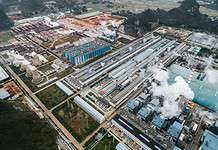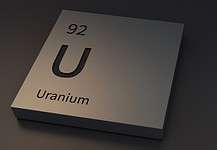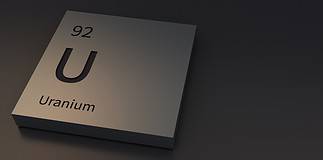Alcoa of Australia Limited will receive $11.3m in funding from the Federal Government to explore technology that reduces carbon emissions in its energy-intensive alumina refining process.
The Australian Renewable Energy Agency (ARENA) this morning announced the funding to Alcoa in the company’s $28.2m project to test Mechanical Vapour Recompressions (MVR) technology, powered by renewable energy, to electrify the production of steam.
The first-of-its-kind deployment in Australia is planned to be undertaken at Alcoa’s existing alumina refining facility at Wagerup, WA, with the potential to improve efficiency, reduce costs and reduce emissions.
ARENA chief executive Darren Miller said this project was a significant step towards making low emissions alumina and an important step towards decarbonising metals production.
“It’s great to see companies like Alcoa take the initiative to create a pathway to reduce their emissions in what is an energy-intensive hard to abate process,” he said.
“This technology represents an opportunity to electrify a refining process that is currently powered by fossil fuels using a renewable solution which addresses our investment priority of helping industry to reduce emissions, as well as the Government’s Technology Investment Roadmap.
“This is an important step on the pathway towards green aluminium in Australia.”
Alcoa vice president for continuous improvement Eugenio Azevedo says Alcoa is the world’s lowest carbon intensity alumina producer and the application of MVR, if proven successful, would be an important step further to reducing greenhouse gas emissions.
“Using lower carbon alumina in the smelting process will reduce the overall carbon footprint of the metal, too, when considering the indirect and direct emissions across bauxite mining, alumina refining and aluminum smelting and casting,” he said.
Alumina refining is an energy-intensive process that uses high pressure steam to produce the heat required to process bauxite into alumina.
About 70% of the total fossil fuels consumed in alumina refining relates to the production of steam in boilers.
The MVR technology powered by renewable energy could therefore reduce an alumina refinery’s carbon footprint by 70%.
The technology also has the potential to significantly reduce water use in the refining process by capturing water vapor that would otherwise be lost to the atmosphere.
In 2019, alumina refining accounted for over 14mt of carbon dioxide in Australia, representing about 24% of Australia’s Scope 1 manufacturing emissions.
Australia is the world’s largest exporter of bauxite and one of the largest exporters of alumina accounting for 15% of global alumina refining capacity.








































